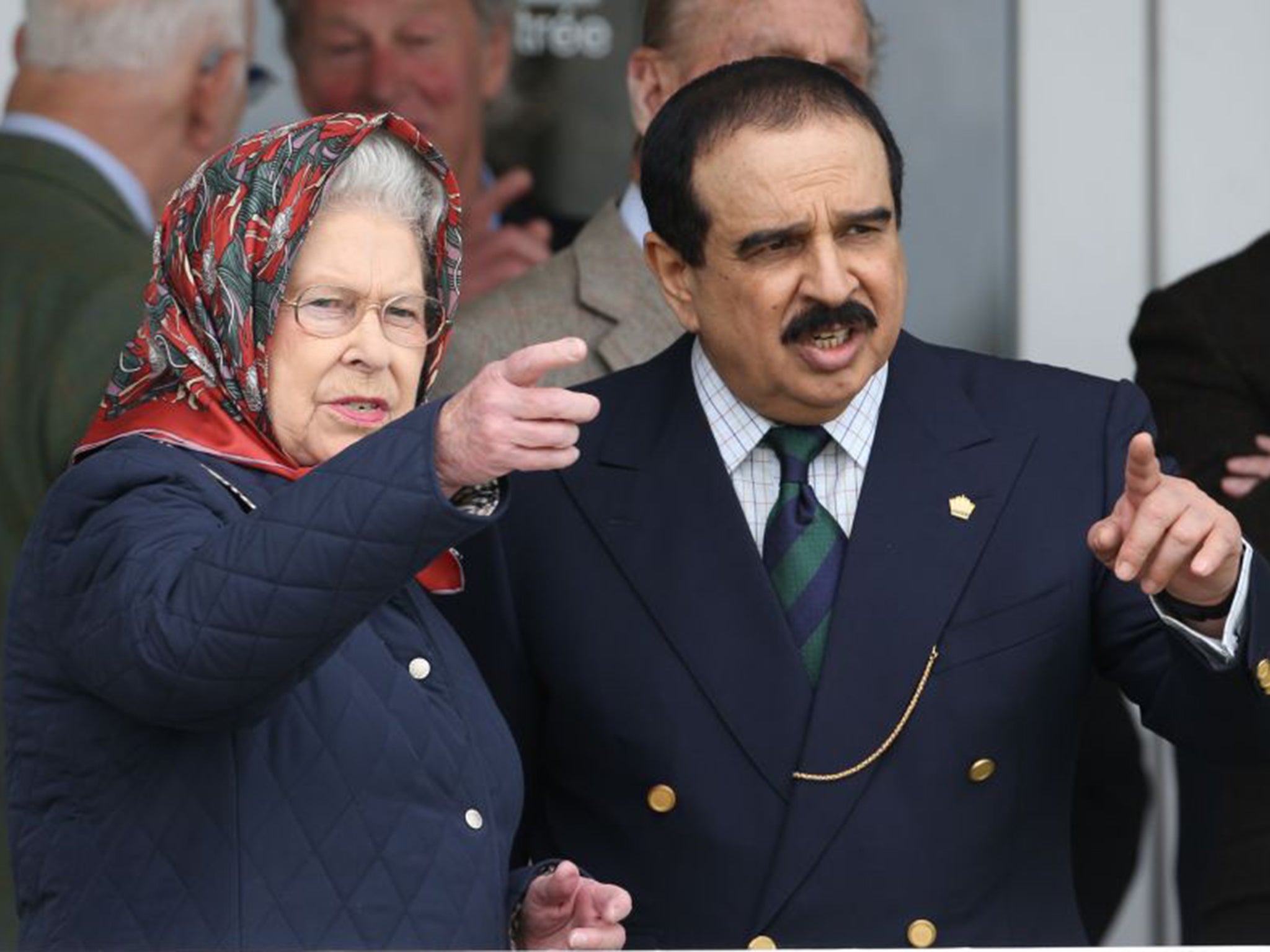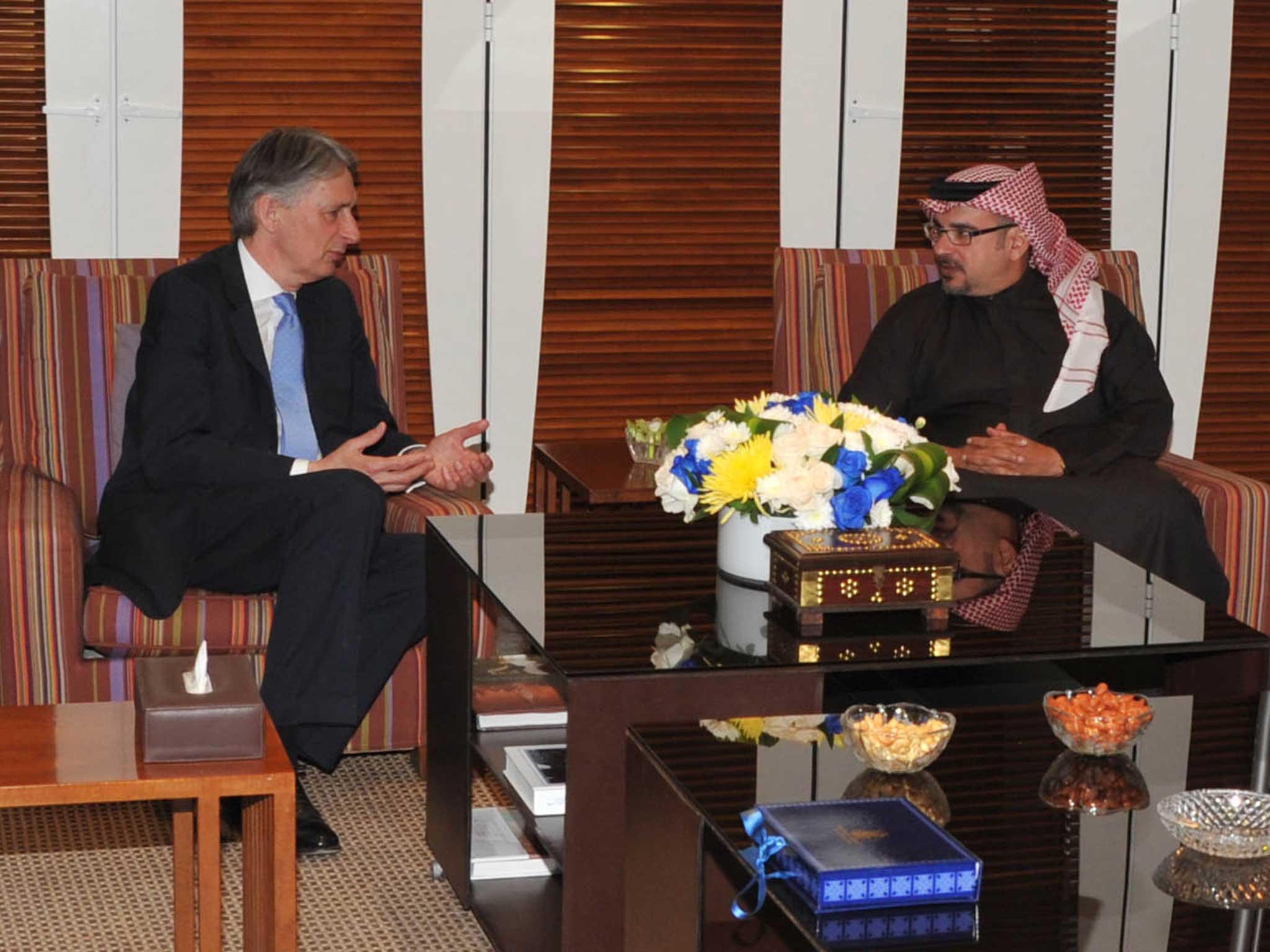Campaigners lose battle to release cable detailing historic UK relations with Bahrain
Court says release of document could damage relations with key Gulf ally

Human rights activists have lost their court battle to force the Government to release a 38-year-old diplomatic cable that could shed light on Britain’s relationship with the authoritarian regime in Bahrain. The ruling came as the king of the Gulf state came to Britain this weekend to attend the prestigious Royal Windsor Horse Show, a sign of continuing warm relations between the UK and Bahrain, where the Royal Navy is building a major new military base.
In a ruling that disappointed campaigners, an information tribunal has ruled that there should be only a partial disclosure of the contents of the cable from 1977, detailing conversations between British officials and Ian Henderson, a British military officer who ran the police in the Gulf state for 30 years and was dubbed the “Butcher of Bahrain”.
Henderson, who died two years ago, was given the nickname after allegations that he was complicit in the ransacking of villages and the sexual abuse and maiming of Shia prisoners. He became head of security in Bahrain in 1966, when the country was still a British protectorate. He had previously helped suppress the Mau Mau insurgency in Kenya.

Part of the document had already been released. However, the court ruled that the remaining details, which would normally be available under a 30-year rule controlling the release of government papers, should be only partially disclosed, as full disclosure of the document would have “an adverse effect on relations” with Bahrain, where the UK is keen to build further economic and defence ties.
The Information Rights Tribunal heard secret evidence for the Foreign and Commonwealth Office (FCO) from a senior diplomat, Edward Oakden, who argued that Britain’s defence interests in Bahrain were of paramount importance. In particular, Mr Oakden implied that the release of such information could jeopardise Britain’s new military base in the country.
The FCO said it was “considering” the judgment, amid suggestions from campaigners that the redacted information is believed to detail Henderson’s verdict on Bahraini security officials, potentially including members of the ruling Khalifa family, and is being held back to avoid jeopardising the naval base.
Marc Owen, the academic who brought the case, claimed the limited release of information ordered by the court was a “partial victory” but that the Government was using “bureaucratic repression” to stop scrutiny of Britain’s historic role in Bahrain.
Mr Owen, who is also a member of the Bahrain Watch human rights group, said: “The result is essentially a façade of transparency that allows the British Government to shield its allies from proper scrutiny”.
The ruling follows a recent Amnesty International report which found that the Bahraini regime continued to “curtail” freedom of expression and that its security forces used “excessive force to disperse protests”. Bahrain has rejected the report, while the FCO says Britain is “working closely” within Bahrain to strengthen “human rights and the rule of law” in the country.
Campaigners said the Bahraini regime was flaunting its relationship with Britain, as King Hamad bin Isa al-Khalifa arrived in the UK at the invitation of the Queen, to watch his eldest son, Sheikh Nasser, compete in the Royal Windsor Horse Show this weekend.
Nicholas McGeehan, a Gulf researcher at Human Rights Watch, said the king’s visit to the UK was of “considerable value” to the regime in Bahrain: “It lends credibility and legitimacy to be seen sitting next to the Queen. That’s why Bahrain is so close to the British establishment.”
A Bahraini government spokesperson said: “His Majesty King Hamad and accompanying delegation travelled to the UK this week to fulfil a long-standing commitment to meet Her Majesty Queen Elizabeth II.”
The visit comes after Britain last year designated Bahrain as a “priority market” for arms sales, amid reports that BAE Systems is trying to sell Typhoon fighter jets to the country’s military.
Join our commenting forum
Join thought-provoking conversations, follow other Independent readers and see their replies
Comments
Bookmark popover
Removed from bookmarks